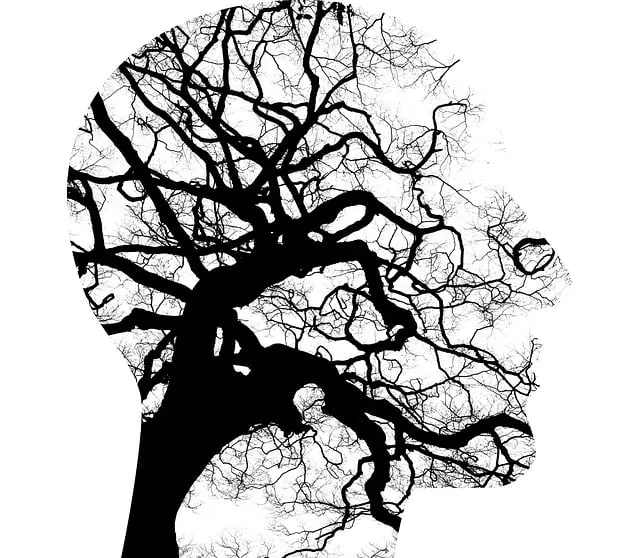Kaiser Permanente training programs Aurora focus on empowering healthcare providers with tools like positive thinking, emotional intelligence, and mindfulness to effectively manage stress levels, thereby improving both mental and physical health. These programs tackle mental health education, cultural competency, and stress reduction through evidence-based practices including meditation, deep breathing exercises, and relaxation techniques. By integrating these skills into daily routines, individuals can enhance their well-being, reduce stress, and navigate challenging situations with greater resilience.
Stress reduction is a vital aspect of maintaining good mental and physical health, with methods that can significantly impact our well-being. This article explores various strategies to manage stress, including an in-depth look at Kaiser Permanente’s training programs and the science behind effective techniques. We delve into mindfulness, relaxation practices, and actionable tips from experts like Aurora to help you navigate daily life’s challenges with resilience. Discover how these tools can transform your approach to stress management.
- Understanding Stress and Its Impact
- Kaiser Permanente Training Programs: An Overview
- Effective Stress Reduction Techniques
- The Role of Mindfulness and Relaxation Practices
- Implementing Stress Management in Daily Life: Tips from Aurora
Understanding Stress and Its Impact

Stress is a natural response to various life challenges, but when it becomes chronic, it can significantly impact our overall well-being. According to Kaiser Permanente training programs Aurora, understanding the root causes and effects of stress is the first step towards effective management. Stress not only affects our mental health but also has physical manifestations, leading to issues like increased blood pressure, insomnia, and a weakened immune system.
The impact of chronic stress can be far-reaching, affecting both personal and professional aspects of life. However, with the right tools and practices, individuals can learn to manage stress levels more effectively. Kaiser Permanente’s training programs offer valuable insights into techniques such as positive thinking, emotional intelligence, and mindfulness—all proven strategies for mitigating stress and enhancing overall quality of life.
Kaiser Permanente Training Programs: An Overview

Kaiser Permanente, a renowned healthcare organization, offers a range of training programs designed to enhance the well-being and effectiveness of its healthcare providers. Located in Aurora, these programs focus on various aspects of mental health education, cultural competency, and empathy building. The Mental Health Education Programs are meticulously crafted to equip professionals with the latest techniques for managing stress and promoting patient mental wellness.
These training sessions delve into topics such as mindfulness, stress reduction strategies, and improving patient-provider communication. Healthcare Provider Cultural Competency Training is another key initiative, fostering an environment of understanding and sensitivity towards diverse cultural backgrounds. By incorporating Empathy Building Strategies, Kaiser Permanente aims to strengthen the connection between healthcare providers and their patients, leading to improved care outcomes.
Effective Stress Reduction Techniques

Stress reduction is a vital component of maintaining good mental health and well-being, and various techniques can help individuals manage and alleviate stress effectively. Kaiser Permanente training programs in Aurora offer valuable resources for those seeking to improve their coping strategies. These programs often include evidence-based practices that have been proven to reduce stress and enhance overall mental wellness.
One effective technique is incorporating self-care practices into daily routines. This could involve activities such as meditation, deep breathing exercises, yoga, or even taking short breaks throughout the day to practice mindfulness. The Mental Wellness Podcast Series Production by Kaiser Permanente can also guide individuals through these practices, providing accessible and engaging content to support stress reduction efforts. Additionally, addressing underlying causes of stress, such as depression prevention strategies, is crucial. Early intervention and access to resources like those offered by Kaiser Permanente can make a significant difference in managing and preventing depressive episodes, thereby reducing overall stress levels.
The Role of Mindfulness and Relaxation Practices

Mindfulness and relaxation practices have emerged as powerful tools for stress reduction, and they are increasingly recognized as essential components of mental wellness. Programs like those offered by Kaiser Permanente training in Aurora focus on teaching individuals how to cultivate present-moment awareness and develop a non-judgmental mindset, which can significantly enhance their ability to manage stress. By integrating mindfulness into daily routines, folks learn to observe their thoughts and emotions without reacting impulsively, fostering a deeper sense of calm and resilience.
These practices, often combined with self-care techniques, form the backbone of effective mood management strategies. Regular engagement in relaxation exercises can help individuals break free from the cycle of worry and anxiety, promoting mental wellness and overall well-being. Incorporating mindfulness into one’s life not only reduces stress but also improves focus, enhances sleep quality, and boosts one’s ability to navigate challenging situations with grace and composure.
Implementing Stress Management in Daily Life: Tips from Aurora

Stress management is an essential part of maintaining good mental health and overall well-being, as advocated by Kaiser Permanente training programs Aurora. Incorporating stress reduction methods into your daily routine can significantly enhance your quality of life. Here are some practical tips to help you manage stress effectively.
Aurora suggests starting with simple yet powerful practices like mindfulness meditation and deep breathing exercises. These techniques, often taught in the Risk Assessment for Mental Health Professionals, promote emotional healing processes by calming the mind and body. Additionally, making time for physical activity, whether it’s a brisk walk or a yoga session, can be an excellent outlet for stress relief. Many mental health professionals also emphasize the importance of risk management planning, ensuring that you have healthy coping mechanisms in place to navigate challenging situations without letting them become overwhelming.
In understanding the profound impact of stress on our lives, it’s encouraging to see established organizations like Kaiser Permanente offering comprehensive training programs. These initiatives, coupled with effective stress reduction techniques and mindfulness practices, empower individuals to take control. Following the insightful guidance from professionals like Aurora, one can seamlessly integrate stress management into daily routines, leading to improved well-being and a more balanced lifestyle. For those seeking support, the Kaiser Permanente training programs and the practical tips from Aurora serve as valuable resources to navigate life’s challenges with greater resilience.






